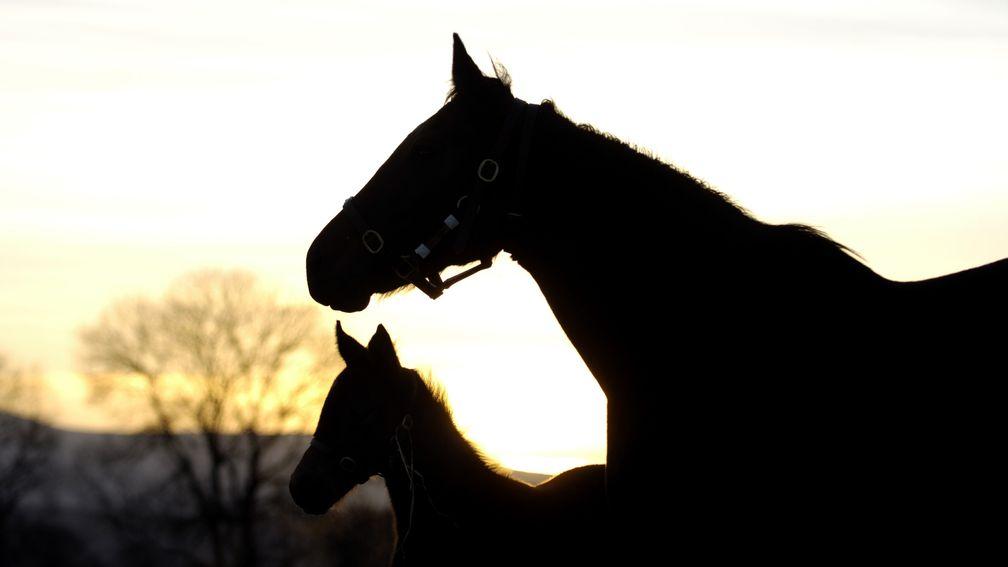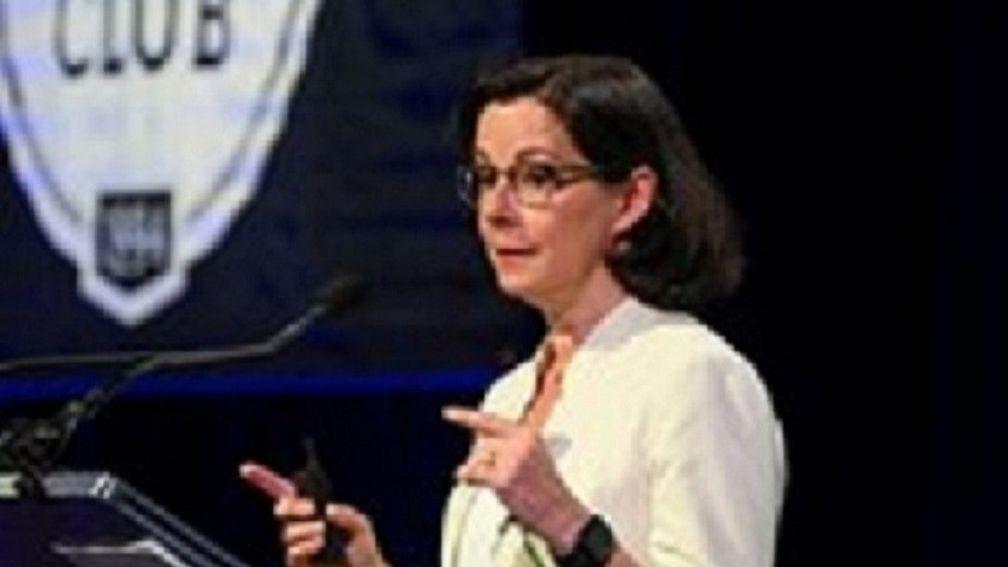Economist: breeding decline tied to wagering decline
Jockey Club Round Table on Matters Pertaining to Racing took place on Sunday

The estimated 2021 foal crop for North America is 19,200. The last time the foal crop dipped below 20,000? 1965.
The numbers couldn't be more dramatic.
Speaking at The Jockey Club Round Table on Matters Pertaining to Racing on Sunday, economist Lauren Stiroh largely tied those declining foal crop numbers to a drop in pari-mutuel wagering as she shared initial results of a study. Stuart Janney III, chairman of The Jockey Club, said it requested the examination of the economics of breeding and racing.
"At the heart of the many economic trends for us is the foal crop, which has been steadily declining over the past few decades," said Janney. "The Jockey Club's estimate for the past several years has been fewer than 20,000. That fact is a dominant reality as racing secretaries try to write their books and fill races and basically satisfy bettors, who have consistently shown their aversion to small fields.
"As a first step to understand and hopefully reverse these trends, The Jockey Club focused on the need for a study of the economics of breeding and racing. ... We don't at this point have any strong conclusions, but we do want to share what we know."
In the study that outlined a decline in thoroughbred breeding from 1990-2021, Stiroh emphasised that when those foal crop numbers were plotted in a graph and compared with other industry trends over the past three decades, the graph that plotted a decline in pari-mutuel wagering (using inflationary dollars) most closely resembled the breeding decline.
"This was the strongest picture where I can see something outside of raising horses that really matches quite closely with the picture that I see for registered foals," said Stiroh.
"This is the one that matches more closely than any of the individual data that I looked at. ... That real handle, which I can see with my eyes as matching up with the changes in the foal crop, is probably the strongest predictor."
In explaining that drop in handle, Stiroh said factors include an increased median age of the horseracing audience in the past 20 years, and many additional options for legal gambling since 1990, including sports gambling and online gambling, adding competition.
Stiroh said the study points to a decline in demand for horseracing events as being the most likely reason for the decline in breeding, as opposed to supply variables affecting the economics of buying, selling and racing horses. (She noted that more study will follow on the reasons for these declines in demand.)
Interestingly, Stiroh noted that average purse earnings, average sales prices and average stud fees have not demonstrated similar declines as seen in the breeding numbers — and to the contrary have generally increased over time.
Three other factors that also showed some level of impact on breeding numbers include the number of races offered, the strength of the economy overall (as measured by GDP), and average stud fees, which declined when foal crops declined and increased when foal crops stayed steady or increased.
"Now there's more certainly to be understood of why these particular four factors are the ones that seem to be so closely associated with changes in the foal crop, but these are ones that I think require some additional investigation," said Stiroh.

The study concludes: "The decline in the foal crop observed since 1990 is not mirrored by similar changes in many variables for the economics of horseracing for horse owners. We investigated the supply and demand factors that might have driven this decline. On the supply side, average purse earnings, average sale prices and average stud fees have generally increased over time. Thus, the reduction in the number of registered foals is unlikely to be tied to a reduction in the profitability of thoroughbred horses.
"Most of the variation in the foal crop over time can be explained by changes in aggregate handle, number of races and macroeconomic factors. Therefore, explaining the decline in the foal crop may require examining what factors might be driving changes in demand for horseracing events."
While Stiroh outlined those breeding numbers, the Round Table also included discussion of people in the industry facing economic challenges. During a presentation on backstretch workers, Shannon Kelly, executive director of The Jockey Club Safety Net Foundation, called for better pay, benefits and working conditions.
She said; "We are allocating tens of thousands of dollars for food pantries. What does that tell us? That tells us that our workforce on our own backstretches is unable to satisfy this basic human need. The people who feed our precious equine athletes cannot feed themselves.
"Racing is not immune to the trends that the country is facing with regards to the workforce. We are competing with companies such as Amazon and WalMart that pay $15 an hour and offer benefits like sick days, vacation time and five-day work weeks. Why would anyone choose to work for us? At a certain point, a love of the horse just isn't enough.
"We need our workforce. We need our backstretch to be a place that people want to work and where they feel safe and welcome."
For all the North American racing and bloodstock news, check out Bloodhorse
Published on inNews
Last updated
- Royal Ascot winner Arizona on the move as Coolmore sire joins the exodus to Turkey
- Something different for Burrows as Group 1-winning trainer consigns at the Tattersalls Cheltenham December Sale
- Breeding right to Blue Point sells for €430,000 on Darley winning bid platform
- Classic hero Metropolitan set for strong home support with Etreham busy at the sales
- 'It has been nothing short of incredible' - Grace Hamilton on Godolphin Flying Start experience
- Royal Ascot winner Arizona on the move as Coolmore sire joins the exodus to Turkey
- Something different for Burrows as Group 1-winning trainer consigns at the Tattersalls Cheltenham December Sale
- Breeding right to Blue Point sells for €430,000 on Darley winning bid platform
- Classic hero Metropolitan set for strong home support with Etreham busy at the sales
- 'It has been nothing short of incredible' - Grace Hamilton on Godolphin Flying Start experience